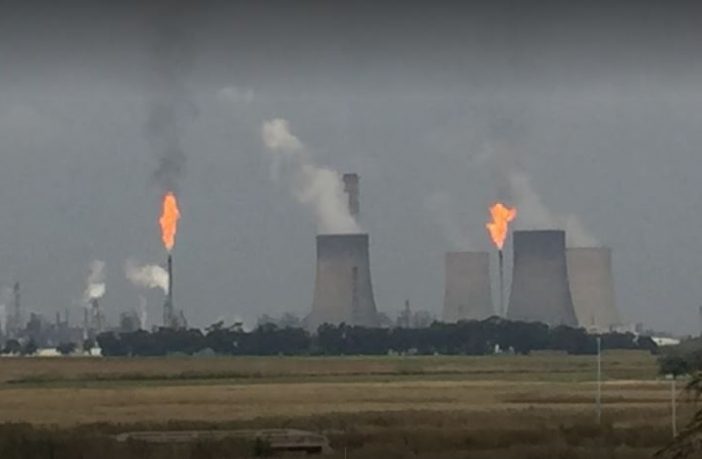- The Minister of Environment, Forestry and Fisheries has upheld the appeal lodged by the Centre for Environmental Rights (CER) against the Department of Environment, Forestry and Fisheries’ (DEFF) 2019 refusal to disclose key greenhouse gas (GHG) emission data and GHG emissions reduction plans for 16 heavy polluters.
- In so doing, Minister Creecy has ordered DEFF to disclose GHG data of some of South Africa’s highest GHG emitters, including Eskom, Sasol, ArcelorMittal, PPC, Exxaro, South32, Glencore, Seriti, SAPPI and Anglo American.
The original request for information
The CER filed an access to information request under the Promotion of Access to Information Act, 2000 (PAIA) to DEFF in February 2019. In response, DEFF provided the CER with redacted records of:
- the companies’ annual GHG emissions;
- their plans to reduce their GHG emissions over the next 5 years; and
- audit reports demonstrating whether there had been progress against these plans.
The DEFF had blacked out information such as the companies’ anticipated emission reductions for the next 5 years.
The appeal
In December 2019 the CER filed an appeal to the Minister in terms of PAIA, calling for the disclosure of the companies’ redacted production and usage rates – crucial information for verification of GHG emissions stated in the reports – as well as the anticipated emissions reductions from all the companies’ pollution prevention plans and audit reports.
The Minister’s decision
The Minister’s 5 April 2020 decision upholds the CER’s appeal, and orders the DEFF to make the redacted GHG emission values available to the CER within 7 days from the end of the COVID-19 lockdown period.
“The Minister’s decision sends a strong signal that big polluting corporates cannot hide behind government when it comes to GHG emission data. Data on companies’ anticipated GHG emissions are invaluable to enable the public to properly assess emission reduction strategies of polluting companies and to inform the public and shareholders not only of the climate risks to which these companies are exposed, but the risks they pose for the whole planet. The climate crisis adversely impacts all people, particularly vulnerable communities, young people and those with existing compromised health conditions. The public needs to know how companies plan to reduce their GHG emissions, in order to hold them accountable when they fail to do so,” says Nicole Loser, attorney at the CER.
The Minister’s decision finds that the DEFF’s reasons to refuse the information were inadequate – lacking in substance and detail. Minister Creecy found that “the overall purpose of the administration of justice requires the disclosure of the anticipated projected emissions and the data relating to anticipated and actual emission reductions”, and that she is “satisfied that public interest outweighs any harm that releasing this information may have”. In other words, the redaction of the anticipated and actual GHG emissions is unjustifiable and against the public interest.
“The full access to this information will foster and contribute towards transparency and accountability which is owed to the public more so in matters pertaining to the environment,” says Minister Creecy’s decision.
The Minister, however, refused to make the activity data (namely, production and usage rates – information with operational details of the facilities) available, stating that this information could be justifiably withheld on the basis that its disclosure could weaken competitive advantage of the relevant companies – a decision which CER disputes.
It appears from the Minister’s decision that only 4 of the 16 companies requested by the Minister to make submissions on the CER’s appeal, did so by the March 2020 deadline. Sasol Ltd and Sappi Ltd had no objection to the redacted information being disclosed, whereas Eskom Holdings SOC Ltd and Seriti Resources Holdings (Pty) Ltd objected to the disclosure of the GHG emission data.
Access to information is fundamental to the realisation of our environmental rights, in facilitating peoples’ ability to make informed decisions about their lives, and to hold polluting companies accountable. The CER and its partners are heartened by this decision by Minister Creecy at a time when, more than ever, transparency is integral to inform the decisive climate action South Africa needs to take to limit our exposure to the worst climate change impacts.
Author: GBA News Desk
Source: CER















